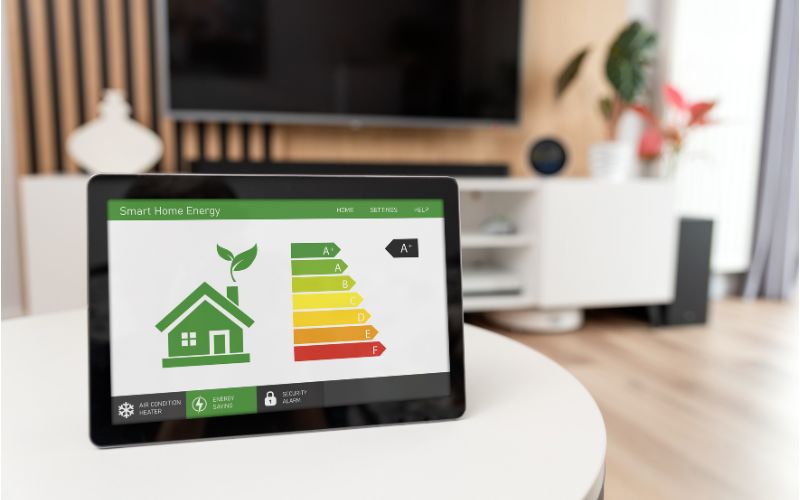What is an Energy Performance Certificate?
In case you weren't sure, an Energy Performance Certificate is a mandatory requirement for property sellers and landlords. They provide valuable information about a building's energy consumption and environmental impact, recorded using a set of ratings which are represented on a scale from A to G, with A being the most energy-efficient and G the least.
What each rating says about your property
A-Rated Properties: Pinnacle of Efficiency
Properties with an EPC rating of A is the gold standard in energy efficiency.
These buildings are designed to minimise energy consumption and, consequently, their carbon footprint.
Typically, A-rated properties boast excellent insulation, high-performance heating systems, and advanced energy-saving features.
Homebuyers or tenants of such properties can enjoy reduced energy bills and contribute to a more sustainable environment.
B to C-Rated Properties: Above Average Efficiency
EPC ratings ranging from B to C signify above-average energy efficiency. These properties are still considered environmentally friendly, with good insulation and efficient heating systems.
While they may not reach the peak of energy efficiency like A-rated buildings, they are solid choices for those seeking a balance between sustainability and affordability.
D to E-Rated Properties: Moderate Efficiency
D and E-rated properties indicate moderate levels of energy efficiency. These buildings may have adequate insulation and heating systems, but they fall short of the standards set by higher-rated structures.
While occupants of these properties may experience slightly higher energy bills, there is still room for improvement through energy-saving renovations and upgrades.
Having an EPC rating of E is the Minimum Energy Efficiency Standard (MEES) set out by the government, a legal requirement that homeowners and commercial landlords must meet.
F to G-Rated Properties: Low Efficiency
Properties with an EPC rating of F or G are considered less energy-efficient. It is also against the law to lease or let a property of any type with an EPC rating below E.
These buildings often have older heating systems, poor insulation, and may lack modern energy-saving technologies.
Occupants of such properties may face higher energy bills and contribute more significantly to carbon emissions.
These buildings may require substantial investments in energy-efficient upgrades to improve their overall performance.
Factors that influence your EPC rating
It's essential to note that EPC ratings are not solely determined by the property's construction.
Occupant behaviour, such as heating habits and energy usage, also influences the final rating.
Additionally, renovations and improvements made to the property can impact its EPC rating positively, offering property owners an opportunity to enhance energy efficiency.
Subsequently, understanding EPC ratings is crucial for both property buyers and sellers. A higher EPC rating not only indicates a more energy-efficient property but also implies lower energy bills and a reduced environmental impact.
As sustainability becomes an increasingly significant concern, the EPC rating serves as a valuable tool in promoting energy-efficient practices within the real estate market. If you're wondering how to improve your property's EPC rating, you can read more about it here.
Whether you are in the market for a new home or looking to improve the efficiency of your existing property, paying attention to EPC ratings can guide you toward a more sustainable and cost-effective living space.
Who are we?
Our team of Chartered Building Surveyors work closely with estate agents, landlords, lenders and local authorities across London and the South Coast to proactively navigate a changing horizon. From ensuring new projects are delivered on time and in budget, to delivering upgrades on behalf of councils.
Read more about our solutions here:
Reinstatement Cost Assessments
Planned Preventative Maintenance
Alternatively, email us at enquiries@sillencehurn.co.uk or call our Southampton team on 02380 014786 or London at 020 3143 2128.
If you're looking for the next steps in your career why not check out our latest opportunities and see if we align with you and your values!





